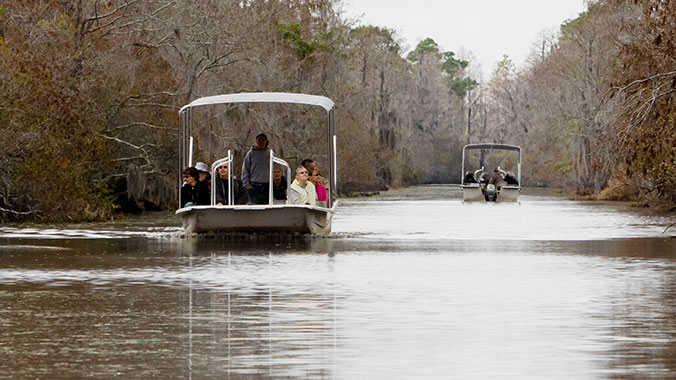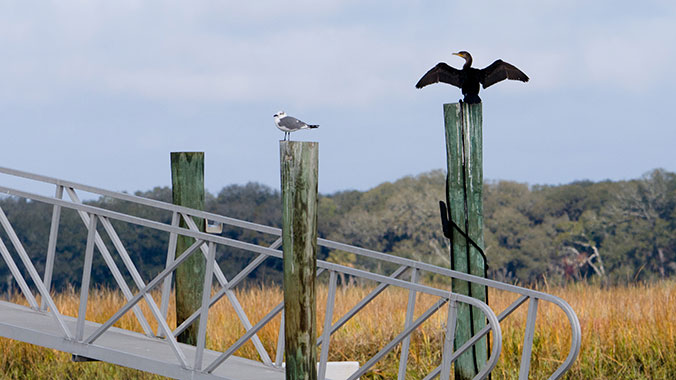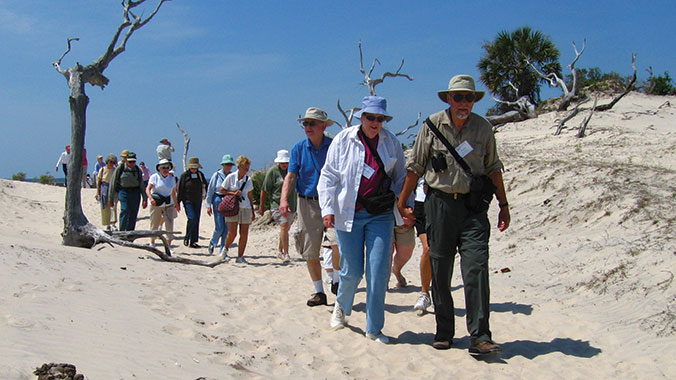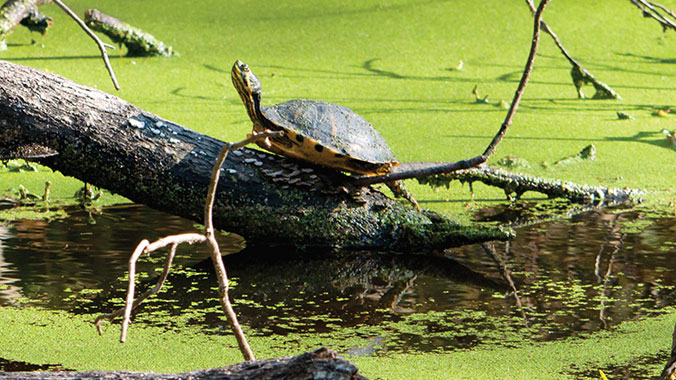History & Ecology: Okefenokee Swamp, Amelia & Cumberland Islands
- Spend a full day exploring the wildlife, landmarks and landscapes of Cumberland Island National Seashore with a local expert.
- Venture deep into the mysterious Okefenokee Swamp on a two-hour boat ride and 1.5-mile boardwalk exploration to learn about black water lakes, pond cypress and the American alligator.
- Learn the fascinating history of Fort Clinch, an important 1800s fortress for both Confederate and Union forces, during a self-exploration.




We want your Road Scholar learning adventure to be something to look forward to—not worry about. That’s why we go to the ends of the earth to give you peace of mind, from the moment you enroll until the day you return home.

Road Scholar is committed to the well-being of every participant, whether on a program in the United States or abroad. That’s why all participants are covered under our Road Scholar Assurance Plan, which provides 24-hour assistance in the event of an emergency during your program, as well as insurance for emergency medical evacuation.

Road Scholar is pleased to offer its Trip Protection Plan as a way to protect your program investment. You may purchase this optional trip protection plan when enrolling in your program.

We offset a portion of the emissions created by your travel. Read about our commitment to a more sustainable planet.





